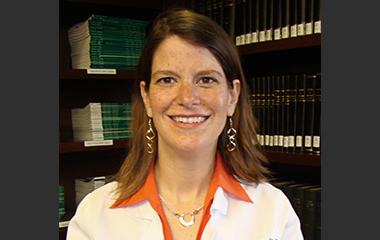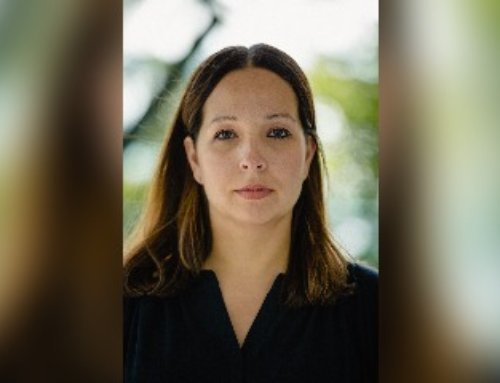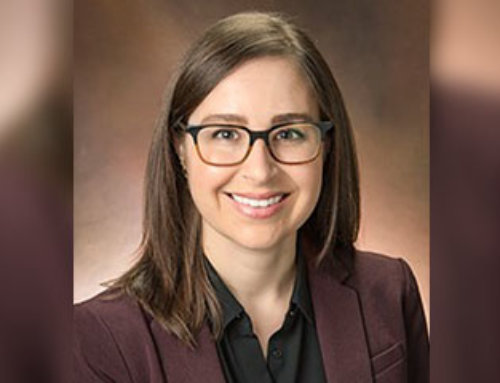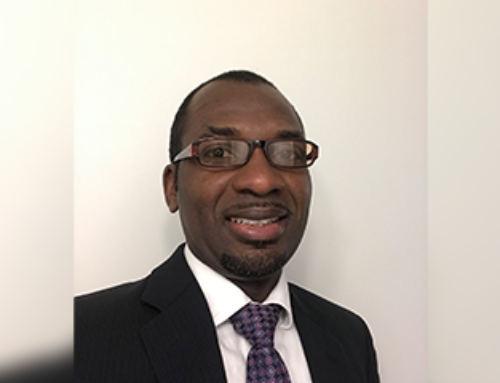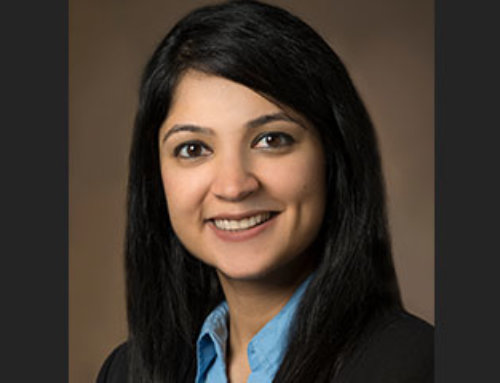2011 Physician Scientist Training Award – Best Science
Throughout medical school and residency, the goal of Amy Amara, MD, PhD, was to become a physician scientist. Receiving a 2011 Physician Scientist Training Award from the American Academy of Sleep Medicine Foundation (AASM Foundation) helped make that dream a reality.
“The announcement for this grant opportunity fit closely with my plans, giving me an opportunity to serve the medical community both through patient care today and by furthering research for tomorrow’s patients,” said Amara, an Assistant Professor of Neurology at the University of Alabama at Birmingham.
The patients who will benefit most from her research are those with Parkinson’s disease, a chronic and progressive movement disorder for which there is no cure. In addition to causing symptoms such as tremor and slowness of movement, Parkinson’s disease often causes sleep problems that can have a negative impact on a patient’s quality of life.
One treatment for the disease is deep brain stimulation of the subthalamic nucleus. Electrodes are inserted into the brain and connected to an implanted, battery-powered pulse generator, which can be externally programmed. However, deep brain stimulation settings have never been optimized for sleep.
Supported by funding from the AASM Foundation and advised by her mentors Jennifer DeWolfe, DO, and David Standaert, MD, PhD, Amara conducted a within-patient, cross-over design to evaluate the effects of deep brain stimulation on sleep efficiency and other polysomnographic parameters. Specifically, she compared two frequencies of deep brain stimulation: the conventional high frequency setting (≥ 130 Hz) and a lower frequency (60 Hz).
Preliminary data provide support for her hypothesis that deep brain stimulation improves sleep more at a lower frequency than at a high frequency. The lower setting potentially could be used during sleep to improve sleep quality and quality of life in patients with Parkinson’s disease. The lower frequency setting also would decrease the nocturnal energy expenditure of the stimulator, which would potentially reduce the frequency of surgical procedures needed to replace the battery in the implanted pulse generator.
The research supported by an AASM Foundation grant became the foundation of Amara’s application for a Mentored Patient-Oriented Research Career Development Award (K23), which was submitted to the National Institute of Neurological Disorders and Stroke (NINDS) and has been approved for funding.
“The Physician Scientist Training Award provided the funding, protected time, and training necessary to obtain preliminary data to apply for and successfully obtain an NIH K23 Award to continue this research,” said Amara.
She anticipates that low frequency deep brain stimulation will improve sleep efficiency and wake-time vigilance over one month in the NIH-funded study. She also expects that the intervention will lead to improved motor outcomes.
For Amara, the personal outcome of her AASM Foundation grant has been outstanding. She has achieved her goal of becoming a physician scientist, and the grant has helped open the door to NIH funding.
“The AASM Foundation grant program provides an excellent opportunity for advancement of an academic career in sleep medicine,” said Amara. “I am honored to have been chosen as a recipient of this prestigious award.”
She also believes that the AASM Foundation grant program produces much broader positive outcomes. By investing in physician scientists today, the AASM Foundation is ensuring the future vitality of the sleep field.
“Grants through the AASM Foundation provide funding for an additional year to allow time dedicated for research,” she said. “This contributes to the training of dedicated physician scientists in sleep medicine to further advance the field. Without these programs, even fewer physicians would focus on sleep medicine research.”
Updated March 29, 2018


